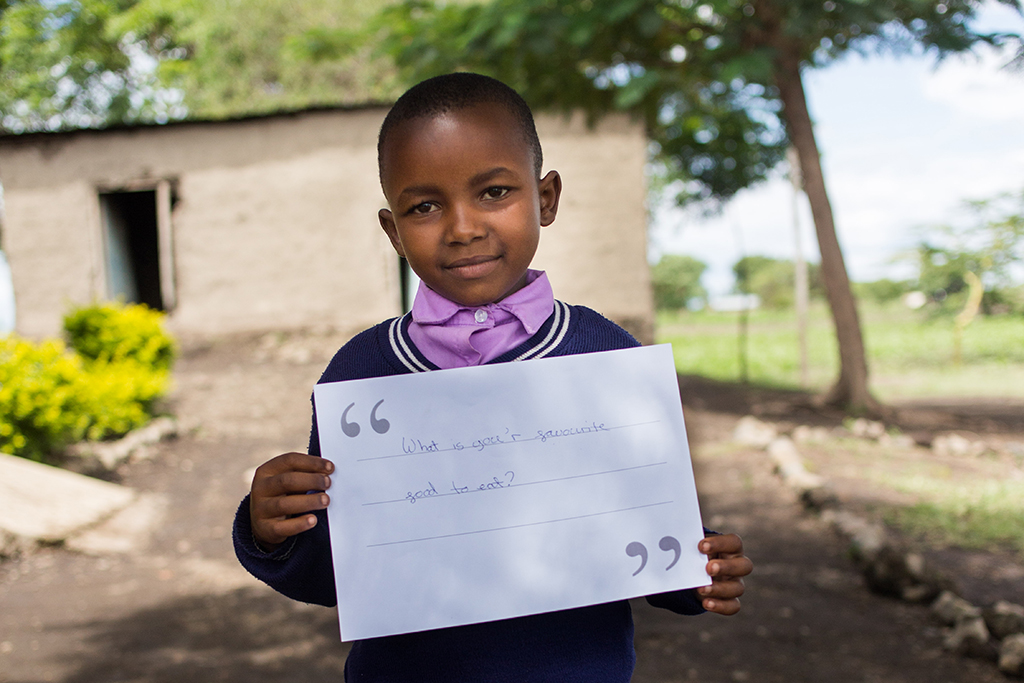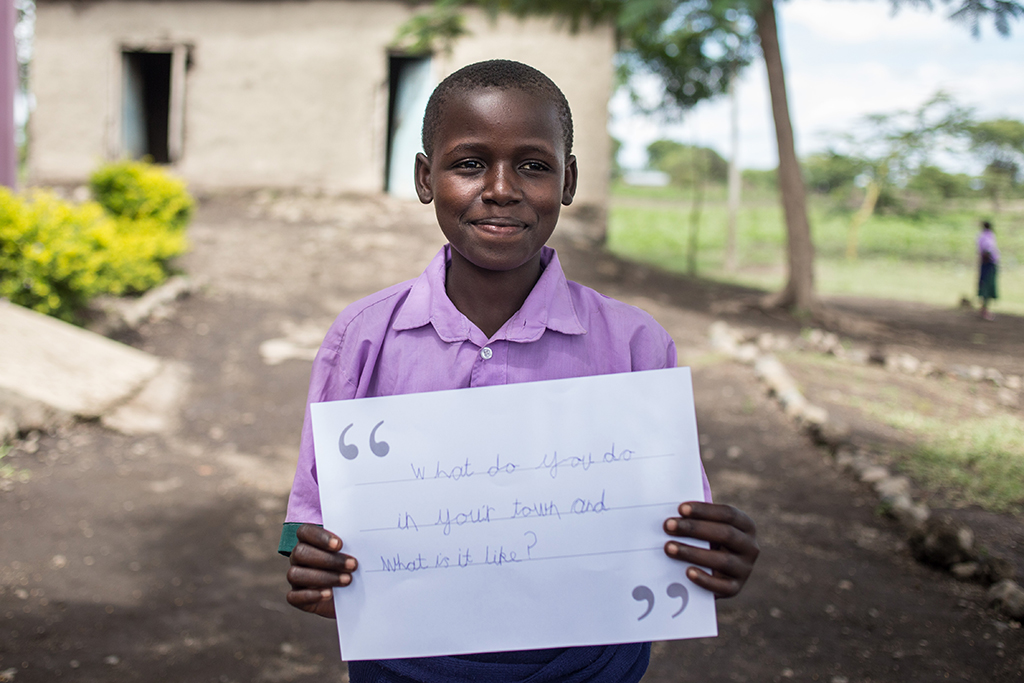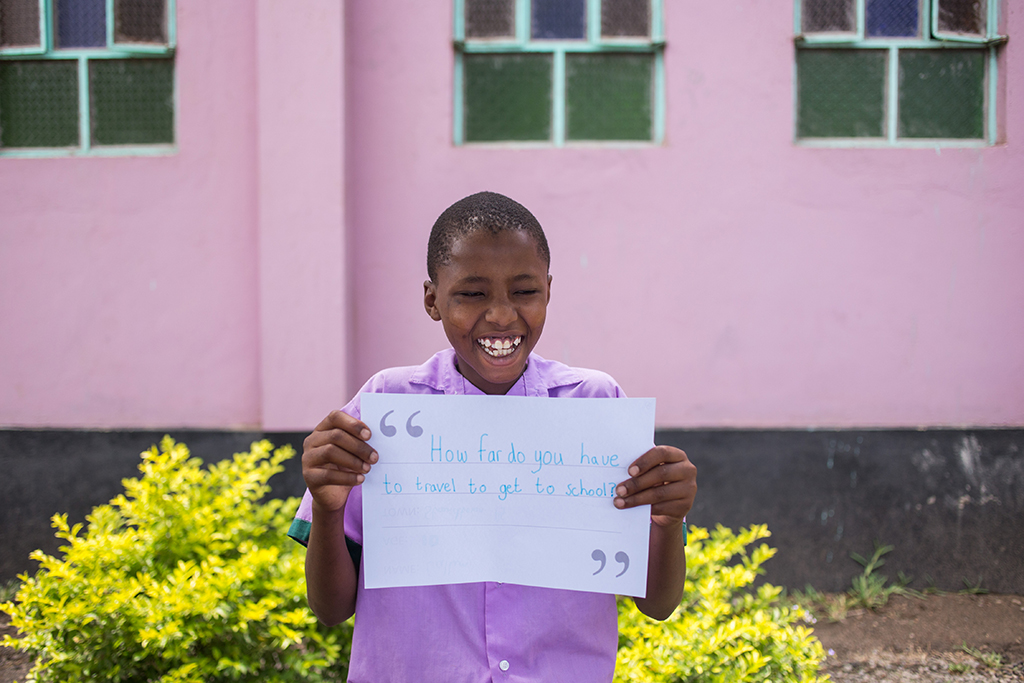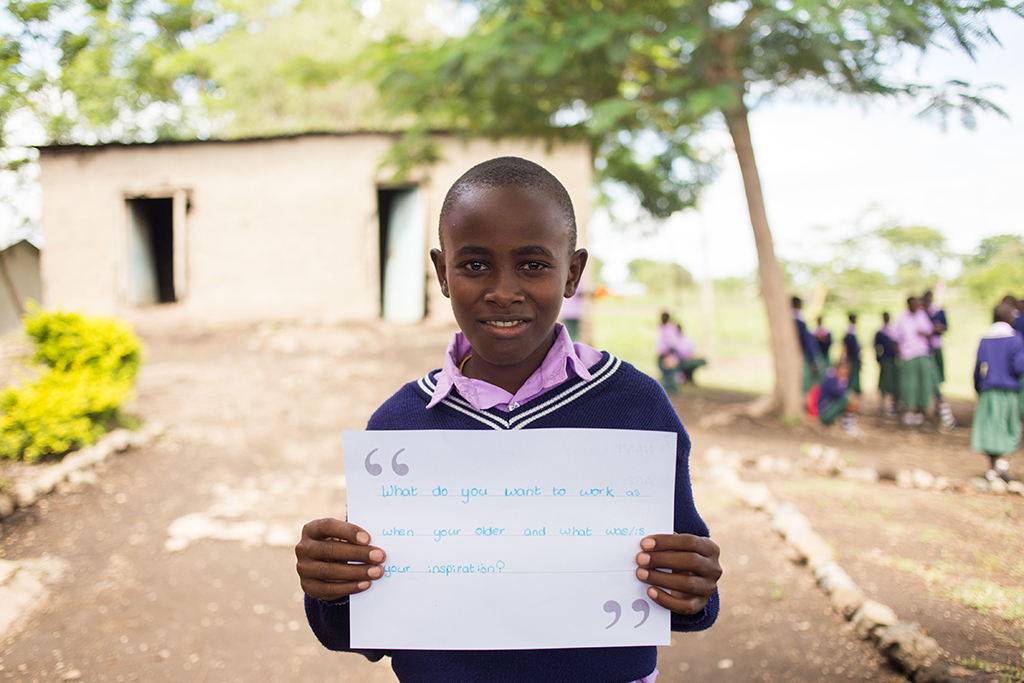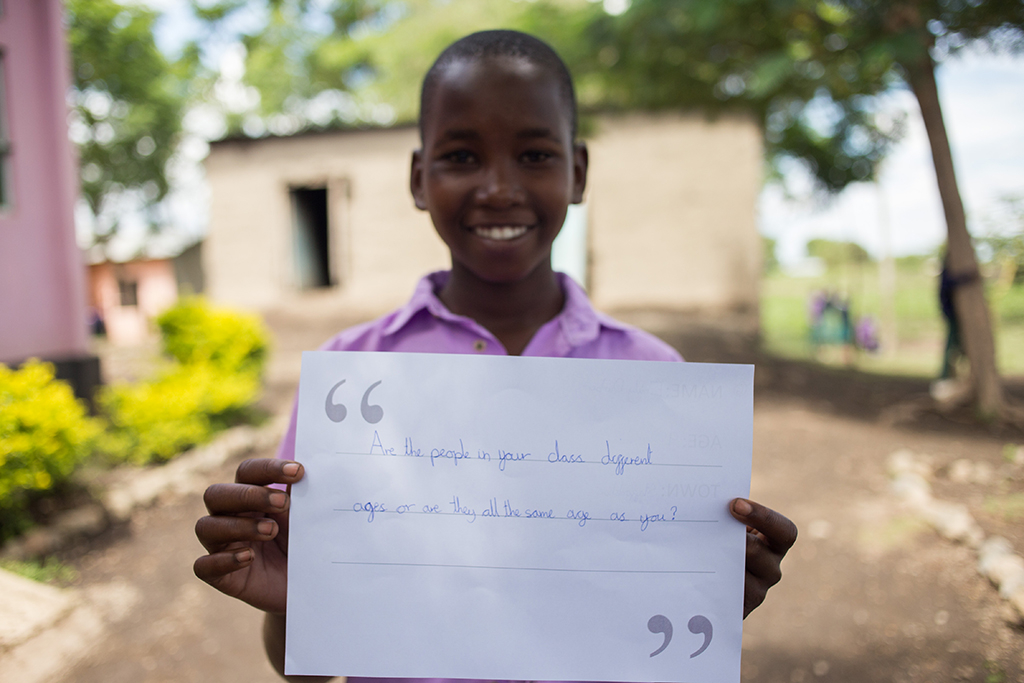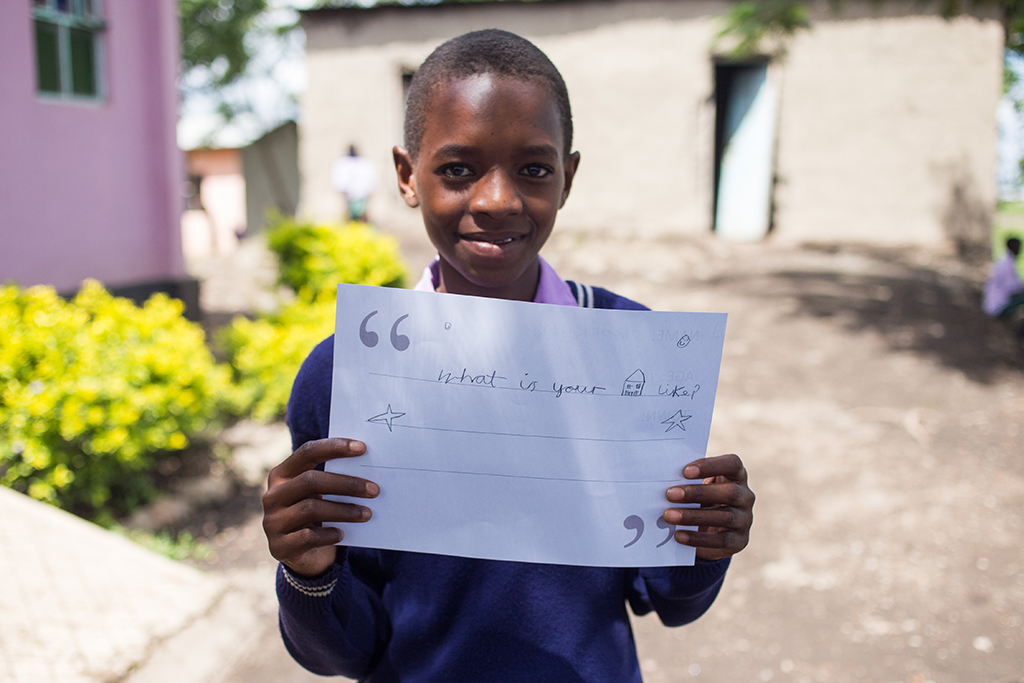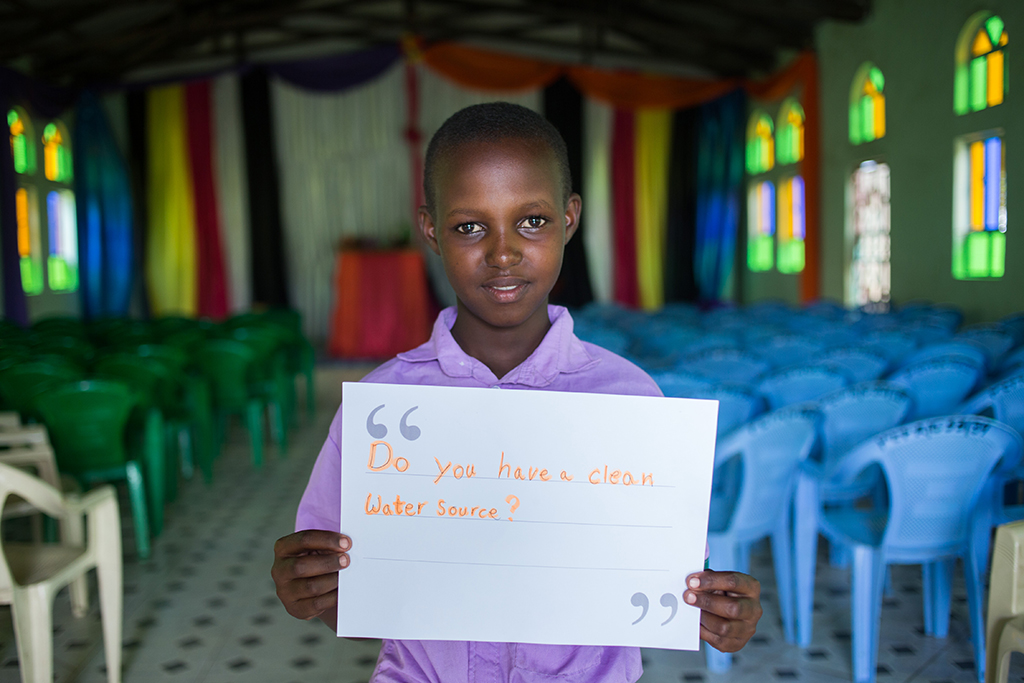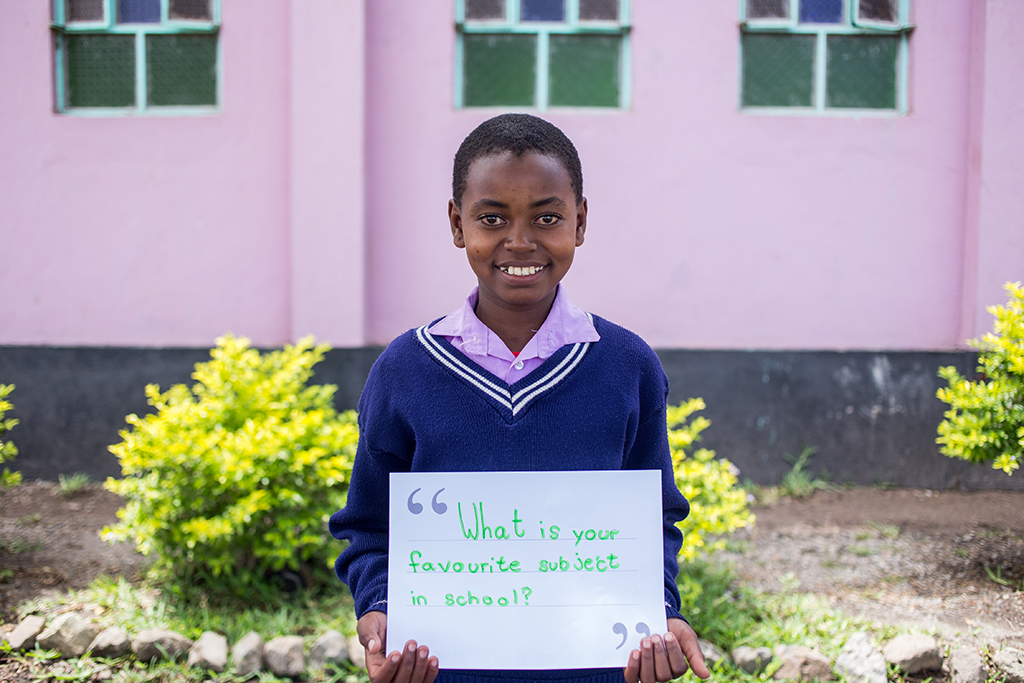“What is your favourite food to eat?” – Maya, 9
“My favourite food is Ugali and rice.” – Pendo, 6
“What do you do in your town and what is it like?” – Max, 10
“Our town is small. We are pastoralists and farmers so there is no supermarket. There are small shops selling food, medicine and other things. There’s no library.” – Veronika, 14
“How far do you have to travel to school?” – Callum, 10
“I walk half a kilometre to get to school. I walk past cows, goats and many plants. I like walking with my friends.” – David, 14
Do you have clean toilets to use in school?”- Bradley, 10
“Our toilets are clean. We have 18 toilets for around 300 children.” – Daniel, 14
“What do you want to work as when you’re older and what is your inspiration?” – Emma, 11
“I want to be a football player. My favourite team is Brazil and my favourite player is Neymar.” – James, 14
“Are the people in your class different ages or are they all the same age as you?”- Emily, 9
“We have different ages in my class, from age 11 to 14. We have 45 children in my class.” – Debra, 14
“What is your home like?” – Oscar, 10
We have three rooms in my house with a roof and windows. We have eight people who live inside. Also, we have a garden where we grow spinach and vegetables. I share my bed with my sister.” – Joyce, 14
“Do you have pets and if you do what are they, and do you have a TV?” – Benji, 10
“We don’t have a television at home and we don’t have electricity, but some houses in this area do. We have a farm around our house so we have cows, goats and sheep. I live with my parents and I have no brothers and sisters. I have a toy car that I like to play with.” – Noel, 13
“Do you have a clean water source?” – Elliot 11
“Yes, my family doesn’t have to travel far to get water. We have a water pipe from a well.” – Magdalene, 13
What is your favourite subject in school? – Hannah, 10
“I like science because of the investigations and we learn to grow plants. The teacher is also my favourite.” – Samuel, 13
They may live over 4,000 miles apart but in many ways, these UK children and their friends in Tanzania are alike: they love to play on the swings, learn about the world around them and giggle with their friends.
Education in Tanzania is often a privilege and not a guaranteed right. While it may be compulsory for children up to the age of 15, it is not always possible for them to attend school – sometimes because children are required to start work at a young age to support their family. Primary school attendance in Tanzania is good, however only half of boys and less than half of girls attend secondary school. Classes can be overcrowded or lack qualified teachers or school supplies.
By sponsoring a child through Compassion, you can ensure kids like Veronika and her friends have the opportunity to go to school and receive an education. With the opportunity to realise their potential, these kids have a bright future ahead.
